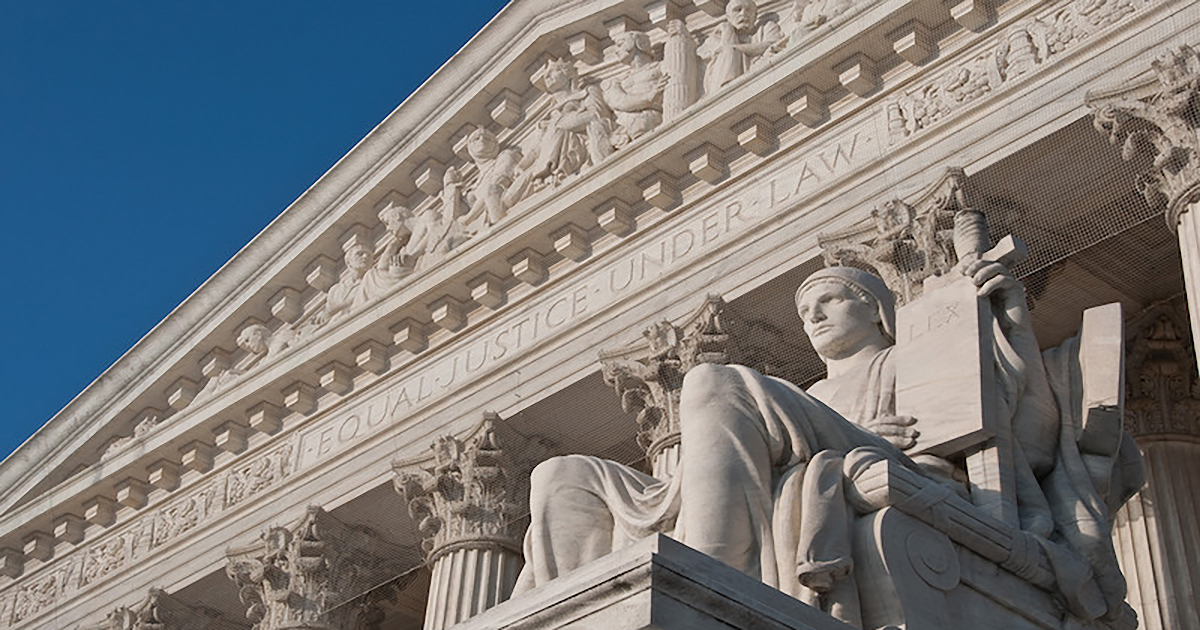"Candidly, we go after the cool kids. We go after the attractive all-American kid with a great attitude and a lot of friends. A lot of people don't belong [in our clothes], and they can't belong. Are we exclusionary? Absolutely."And as Jeffries further admitted, Abercrombie's hiring policies were built on that same exclusionary principle.
"[W]e hire good-looking people in our stores. Because good-looking people attract other good-looking people, and we want to market to cool, good-looking people. We don't market to anyone other than that."So when Samantha Elauf, a hijab-clad, practicing Muslim, applied for a sales associate position at an Abercrombie & Fitch store in 2008, Abercrombie's policies left only one possible outcome.
Although the store's assistant manager concluded that Elauf was qualified, Abercrombie ultimately refused to hire Elauf because her headscarf would conflict with Abercrombie's "Look Policy," which forbid employees from wearing "caps." Abercrombie suspected that Elauf wore her headscarf because of her faith, but deliberately did not broach the subject with Elauf, and refused to consider any accommodations.
The Equal Employment Opportunity Commission ("EEOC") sued on Elauf's behalf. The Tenth Circuit Court of Appeals sided with Abercrombie, holding that a Title VII violation cannot occur unless the applicant or employee notifies the employer of a need for accommodation.
The Supreme Court took up the case in order to decide whether a Title VII violation can occur where the employer merely suspects, but does not know, of a need for religious accommodation.
The Supreme Court reversed the Tenth Circuit's decision. The Court instead held that an employer's knowledge of a need for religious accommodation is not a prerequisite to liability under Title VII.
Justice Scalia, writing for the majority, emphasized that Title VII's protections against religious discrimination rest on the employer's motive, not its knowledge.
"[A]n employer who acts with the motive of avoiding accommodation may violate Title VII even if he has no more than an unsubstantiated suspicion that accommodation would be needed."Thus under Abercrombie, an applicant may establish a Title VII violation by simply demonstrating that her need for religious accommodation was a motivating factor in the employer's decision.
"An employer may not make an applicant's religious practice, confirmed or otherwise, a factor in employment decisions.
In reaching that holding, Justice Scalia rejected Abercrombie's argument that its "no cap" policy could not be "intentionally discriminatory" because it applied neutrally to all applicants.
The Court made clear that when an otherwise-neutral policy conflicts with an applicant's need for accommodation, "Title VII requires otherwise-neutral policies to give way." In other words, Title VII grants religious practices "favored treatment, affirmatively obligating employers" not to make employment decisions motivated by an individual's religious practices, even where such decisions arise from the application of otherwise-neutral policies.
The facts of Abercrombie itself demonstrate the correctness of that holding. Abercrombie's "no cap" policy—though purportedly neutral—could in practice only exclude applicants that refused to come to work without the offending headwear. But a reasonable applicant would never refuse to leave his or her headwear at home, unless the headwear served a religious purpose. Thus Abercrombie's "no cap" policy, in practice, could only serve as a tool for religious discrimination, and an end-run around Title VII. Unless Title VII requires "favored treatment" when an applicant's religious practices and beliefs conflict with such "neutral" policies, Title VII would have little meaning.
Abercrombie is thus a warning to employers that willful blindness, purported ignorance, and cleverly worded "neutral" policies that inherently serve discriminatory purposes will not excuse them from Title VII liability. Employers will need to review current policies to ensure they do not discriminate despite being facially neutral, and take care that employment decisions are not motivated by potential needs for accommodation protected under Title VII.
Abercrombie, for one, has already taken the cue. In April 2015, months before the Court issued its opinion, Abercrombie announced it would relax its "Look Policy" to allow greater individual expression.


